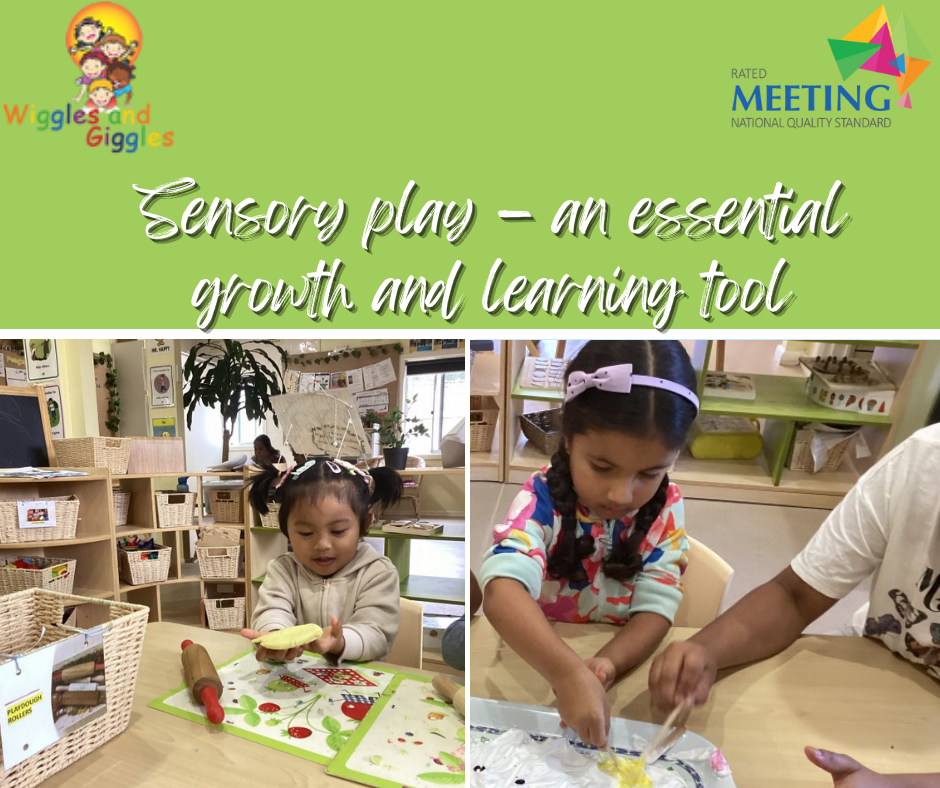Benefits Of Sensory Play
Sensory play includes those activities designed to stimulate a child’s senses. The senses refer to the various ways in which children learn to perceive the world or their surroundings. Sensory play helps youngsters develop their senses — such as taste, smell, sight, touch and sound — which, in turn, aids them in navigating their environment.
Here are some major benefits of sensory play for children:
1. It aids in language development.
Sensory play helps cultivate your child’s linguistic skills naturally. Children learn through experience in their environments. By mastering different ways of conveying their emotions, wants and needs during play, children develop skills to express what they’re doing and how they feel, As they gain more experience, they become better equipped to utilise more descriptive words to communicate.
2. It helps with developing fine motor skills.
Sensory play can aid in the development of children’s fine motor skills. These include tying their shoes, writing, and zipping up their own coats. Your child’s ability to use small muscle groups and coordinate motions is enhanced through tactile play that focuses on building, pouring and mixing.
Examples of sensory play intended to refine your child’s motor skills include allowing them to touch and examine dry cereal, pasta and rice or play with slime or playdough.
3. It supports gross motor skills learning.
Sitting, crawling, running and jumping are all examples of gross motor abilities that require the use of your child’s major muscles in the arms, legs and core or stomach area.
To support the development of your child’s gross motor skills, you need to provide them plenty of opportunities to practise their skills, such as jumping on a trampoline and playing catch or throwing a ball.
4. It ensures healthy cognitive development.
Cognitive growth includes asking questions, investigating how things function, conducting tests or experiments and interpreting the results. It’s how people learn new things and solve problems.
With sensory play, children can work on their problem-solving skills, experiment with different ways of playing and engage with diverse experiences. Simple examples of these experiences include attempting to feed themselves using a spoon, unwrapping a piece of candy, climbing up monkey bars or balancing themselves on a swing.
Sensory play — an essential growth and learning tool
With sensory play, your children become more adaptable, flexible and able to navigate the world with the necessary tools.
By engaging their senses and developing their sensory skills, children become better-equipped problem-solvers as they continue to explore new situations and surroundings.




Recent Comments